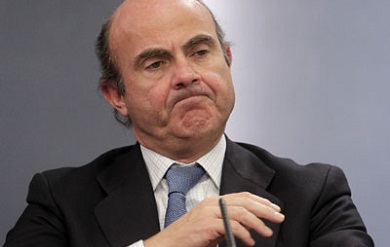Analysts at the largest financial institutions in Madrid agree that the Spanish government will sooner than later officially require capital aid from the European Union. Consenso del Mercado, a leading market news outlet in Madrid, polled 22 experts this week and 19 answered that they expect a bailout will be activated by 2014.
Only three respondents held the argument that Spain could avoid a rescue, which would push the country towards the same path already walked by Greece, Ireland and Portugal. Juan Carlos Costa, director at EAFI, explained that the risk premium over wholesome market credit may experience some moderated hikes but “10-year bond yields have definitely relaxed.” Also, Costa said, “some global institutional investors have reopened their buy positions.”
Public debt interests are below 4 percent of GDP and the average cost of external finance this year for Spain will be lower than 5 percent.
But the majority of analysts concluded that “some sort of rescue” will be necessary during the coming 12 months. At CMC Markets, Víctor Rodríguez said he believed the government could ask for a bailout before the end of 2012 “whether directly or not, via the banking system,” in spite of president Mariano Rajoy having denied it as financing needs have already been met for this year.
Most respondents pointed out that the cost of credit is, nevertheless, too high and affects negatively corporate issuers. Although market access seem functioning, the risk spread between Spanish and German bonds–considered the benchmark for investor trust–should be on the region of 250 basis points, analysts said, and only an intervention by the European Central Bank could achieve this goal.
Spain’s minister for the Economy Luis de Guindos indicated Monday in Brussels that, according to government calculations, the Spanish GDP could grow by 0.5 percent if the risk spread–now at 462–fell 100 basis points.






Be the first to comment on "Most Spanish financial analysts forecast a Spailout before 2014"